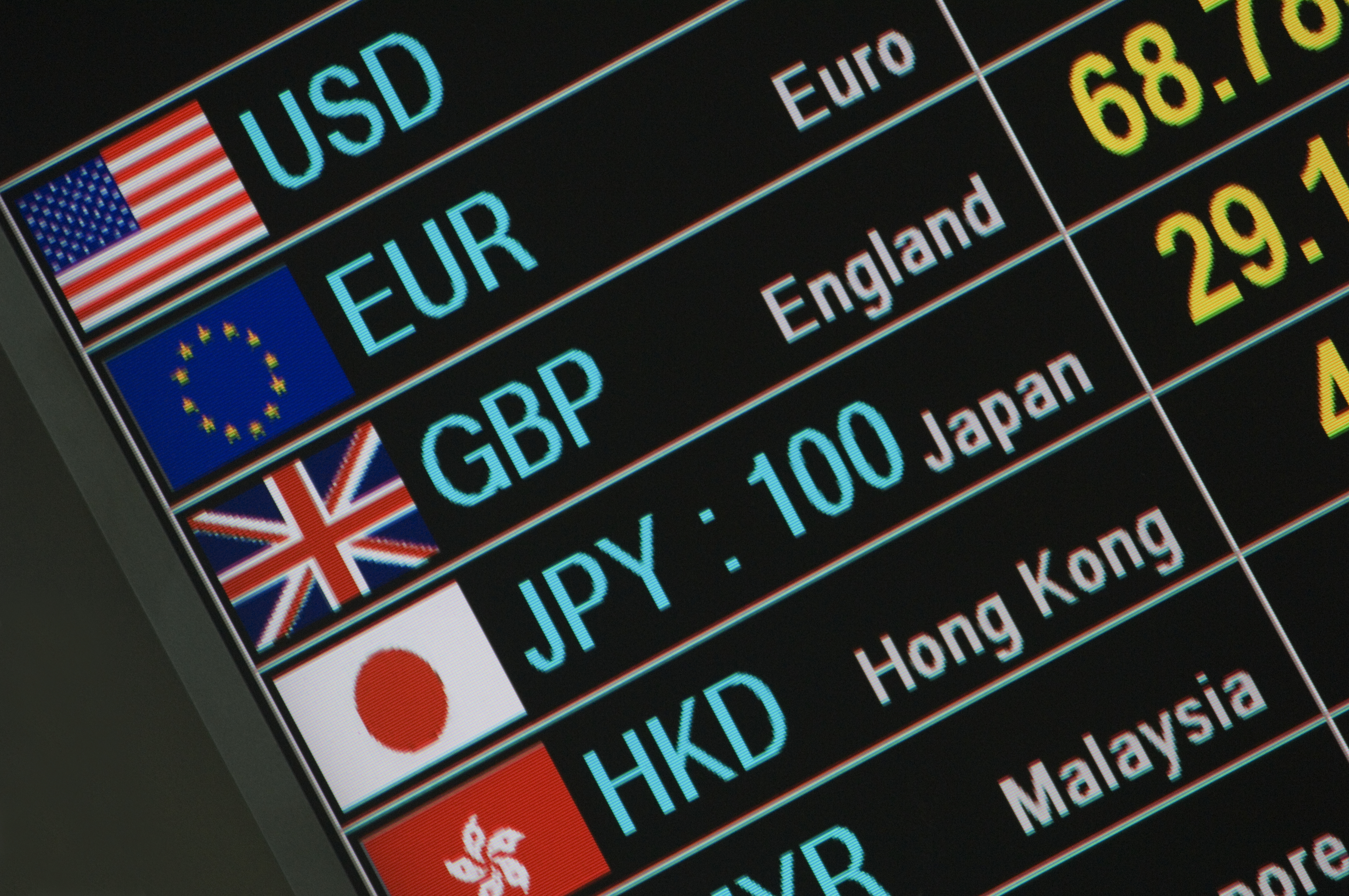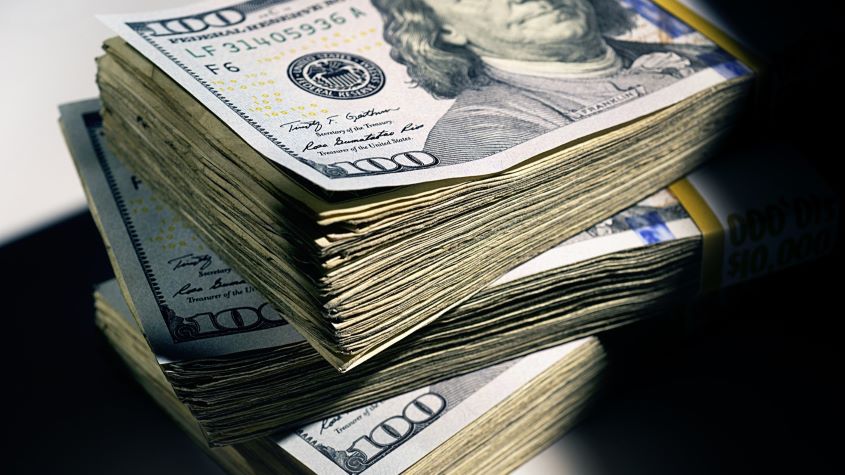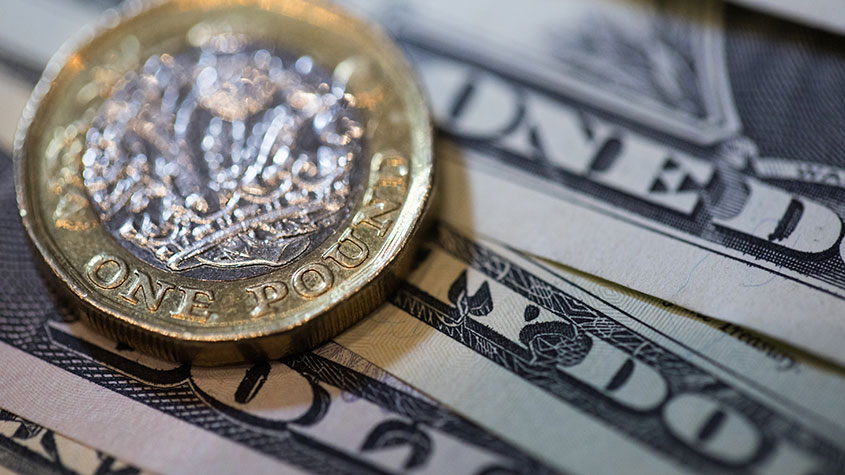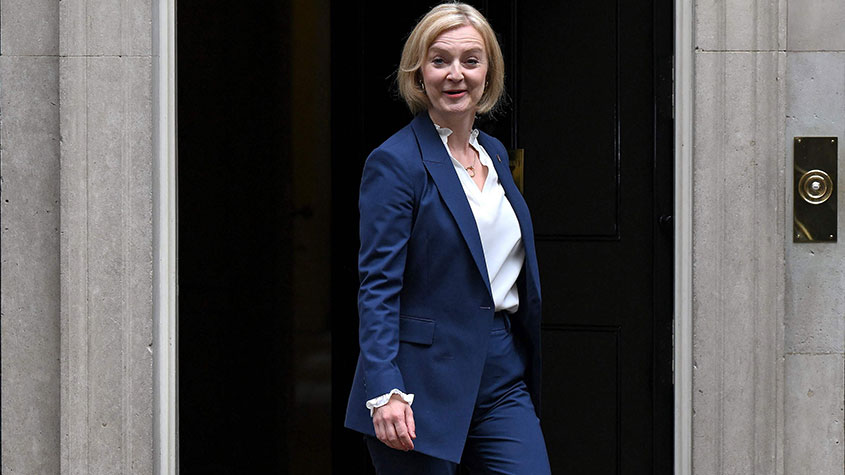What is FX trading?
What is FX trading and can you make money from it? We explain how foreign exchange trading works and the risks

Rupert Hargreaves

Get the latest financial news, insights and expert analysis from our award-winning MoneyWeek team, to help you understand what really matters when it comes to your finances.
You are now subscribed
Your newsletter sign-up was successful
Want to add more newsletters?

Twice daily
MoneyWeek
Get the latest financial news, insights and expert analysis from our award-winning MoneyWeek team, to help you understand what really matters when it comes to your finances.

Four times a week
Look After My Bills
Sign up to our free money-saving newsletter, filled with the latest news and expert advice to help you find the best tips and deals for managing your bills. Start saving today!
Foreign exchange trading, or FX trading, sometimes feels like all the rage and a fast route to riches.
But the reality couldn’t be more different. Most so-called retail traders (those of us without millions of pounds to play with) lose money FX trading.
“Ultimately, for someone to be successful in trading any market, but specifically the forex market, you need to have a clear strategy, edge and process,” says Sam North, market analyst at trading platform eToro. “It takes time, patience and a lot of hard work to master but can be fruitful once executed consistently and correctly.”
MoneyWeek
Subscribe to MoneyWeek today and get your first six magazine issues absolutely FREE

Sign up to Money Morning
Don't miss the latest investment and personal finances news, market analysis, plus money-saving tips with our free twice-daily newsletter
Don't miss the latest investment and personal finances news, market analysis, plus money-saving tips with our free twice-daily newsletter
FX trading is, in the simplest possible sense, the process of buying and selling different currencies in the hopes of making a profit.
There are many different currencies around the world, with varying exchange rates and values.
Some of the most commonly known currencies include the United States dollar (USD), the Euro (EUR), the British pound (GBP), the Japanese yen (JPY), the Chinese yuan (CNY), the Canadian dollar (CAD), the Australian dollar (AUD), the Swiss franc (CHF), and the Indian rupee (INR), among others.
Each currency has its unique symbol and code and is used to facilitate trade and commerce within its respective country or region.
The value of one currency against another is determined by several different factors.
A country's interest rates, economic position, and economic policies all help traders determine the value of a currency against its peers.
However, while these factors do influence the value of the currency over the long term, in the short term – hours and days – the value of a currency is determined by market sentiment and news headlines.
That’s what makes FX trading so challenging. The investment and trading environment can change in the blink of an eye, causing potentially huge losses for traders.
Another reason why FX trading can be so risky is the fact that traders usually have to use leverage.
Traders often employ leverage to increase potential profits. However, this also increases potential losses.
But before I take a deeper look at the risks of borrowing money to trade a volatile asset class, I think I first need to take a step back and explain how currency markets work.
How does FX trading work?
If you’ve been on holiday, you will know the basics of the FX market. If you want to spend money in another country, you will have to change your funds from pounds sterling into whichever currency it is you want to spend.
If you go to a foreign exchange booth and exchange your pounds sterling for dollars, for example, you are effectively selling sterling to buy dollars – very similar to selling any other good or service.
This is how FX trading works on the global market, although on a much larger scale.
Every day $7.5 trillion of currencies are bought and sold around the world. From individuals transferring money to go on holiday or sending money home to relatives, to private equity companies forking out billions to acquire a business in a different country, the basics of the process are the same.
Foreign currency traders try to make money by buying a currency at one price and hoping to sell it back at a higher price.
For example, if I go on holiday to the US and want some spending money, I would sell my pounds sterling to buy US dollars. At an exchange rate of £1 to $1.20 I could buy $120 with a sum of £100.
If I don’t spend this money, I can change it back when I get home. But currency markets are constantly changing, and that’s where FX trading can be quite profitable.
If the exchange rate moves when I’m away, from $1.20 to $1.18, when I try and sell my dollars back in the UK, they will buy £101.70, a profit of £1.70.
The risks of FX trading
One of the main benefits of currency trading is the potential for high returns. Because currencies are constantly fluctuating in value, traders can profit from the difference between the buying and selling price of a currency pair.
However, it is important to note that currency trading is not without risks. The market can be highly volatile, and traders must be prepared to manage their risk through proper money management and discipline.
On a day-to-day basis, the rate of exchange between one currency and another is nothing more than a reflection of market sentiment. As such, currencies can swing widely in value.
But over the long term exchange rates are determined by multiple macroeconomic factors such as interest rates, economic growth, and a country's debt load.
Foreign currency trading involves trying to capitalise on short-term market movements to make a profit and leverage is usually used to improve returns.
Returning to my holiday example; a profit of £1.70 is far from enough to make a living. A more attractive profit might be more in the region of £1,700, but to earn this I’d have to have sold £100,000 in the first place.
That would be fine if I had the backing of one of the world's biggest banks, but for most, it’s an unattainable starting point.
That’s where leverage comes into play. FX trading platforms usually offer punters leverage to increase profits and losses.
“Leverage allows traders to control large positions with a relatively small amount of capital, potentially magnifying gains from small movements in exchange rates,” says North. “However, this also amplifies risks; losses can exceed the initial investment, leading to substantial financial losses.”
One of the world’s largest trading platforms offers investors leverage of as much as 1:2000. That means for every £1 in an account a trader can play with £2,000. I would only need £50 to trade £100,000.
This is where things can get dangerous. While leverage makes it easier to make money, it also makes it easier to lose money.
Let's say I think the pound is going to fall in value against the dollar. To make money from this trade I would go “short” the pound against the dollar (GBP/USD).
If a trader goes “long” they’re hoping the price will rise. If a trader wants to bet against a currency they will “short” it.
If the exchange rate for the pound against the dollar is $1.20, and I want to go short sterling, I would purchase £1 for $1.20 in the hopes that the dollar appreciates. If it does, I can sell my dollars for pounds and earn a profit on the difference.
By using leverage I can improve my returns.
So, if I use leverage of 1:2000 I can short the pound against the dollar using £100,000 (traded for $120,000) with a deposit of just £50.
However, if the value of the pound against the dollar rose rather than fell I’d have to deal with some steep losses.
If the exchange rate moved from $1.20 to $1.22 and I repurchased my pounds, I would receive £98,361. That would be a loss of £1,639 – not only wiping out my deposit, but also leaving me £1,589 in debt.
Put another way, if a trade goes wrong, you can lose a lot of money very quickly when trying to trade FX.
And the odds are stacked against the average trader.
“Other risks include high volatility, where currency values can fluctuate rapidly due to economic news, political events, or market sentiment,” says North. “Liquidity risks can occur in less traded currency pairs, where there might not be enough market depth to exit positions at desired prices.”
Around two-thirds of retail traders lose money. That means traders only have a 33% chance of success on average. Even this is not guaranteed.
To be successful in currency trading, traders must have a solid understanding of the market and the factors that affect currency prices. It is important to have a trading plan to stick to it, and to be disciplined in managing risk and emotions. Additionally, traders must stay up-to-date on global economic and political developments that may affect the market.
“Forex traders must keep a close eye on the economic calendar, as key data releases can significantly impact market movements,” says North. “They should also understand when trading volume peaks for specific currencies and, over time, determine the periods during which they perform best.”
There are less risky ways of profiting from changes in FX rates over the long term, without the risks involved in short-term leveraged trading.
“One such strategy is carry trade, where investors borrow in a currency with a low interest rate and invest in a currency with a higher interest rate, earning the interest differential,” says North. “This method requires careful consideration of interest rate policies, economic stability, and currency risk but can offer steady returns over time without the daily market noise.
“Another approach involves investing in currency-hedged international equity or bond funds, where the fund manager uses financial instruments to protect against currency fluctuations, thus focusing on the asset's performance rather than currency movement. These strategies require less active management and can be part of a broader, more diversified investment portfolio, providing a way to benefit from currency movements with reduced exposure to short-term market volatility."
How to choose an FX broker
“Retail traders can get involved in FX trading by opening an account with an online broker,” says North. Before doing so, “traders should first understand the basics of how forex markets work, including the concepts of pips, lots, and margin”.
If you want to get into FX trading, there are some things you should keep in mind when choosing who you trade with:
- Only use a regulated broker. The FCA’s website has a list of those brokers registered with the regulator. The site also has a list of companies that are trading and not regulated. These should be avoided at all costs.
- Never trade with more than you can afford to lose. You’ll likely lose all of your money so go into FX trading prepared for the worst.
- Just because you’re offered leverage it doesn't mean you should use it.
- You must know what you’re doing. The FX trading market is awash with scams and bad actors, that’s without taking into account the risks of trading with borrowed money in the first place.
- Consider the spread - the difference between the buying and selling price of a currency pair. The spread represents the profit margin for the broker, and traders must consider this when entering and exiting trades.
- Trading fees and commissions can eat into profits if not managed properly.
North points out that traders can start out by trading with a virtual account, allowing them to practice without taking any financial risk, and keeping a trade journal while they do so.
“This approach helps in finding one's trading edge, understanding personal risk appetite, and refining trading processes before committing real capital,” he adds.
Get the latest financial news, insights and expert analysis from our award-winning MoneyWeek team, to help you understand what really matters when it comes to your finances.

Dan is a financial journalist who, prior to joining MoneyWeek, spent five years writing for OPTO, an investment magazine focused on growth and technology stocks, ETFs and thematic investing.
Before becoming a writer, Dan spent six years working in talent acquisition in the tech sector, including for credit scoring start-up ClearScore where he first developed an interest in personal finance.
Dan studied Social Anthropology and Management at Sidney Sussex College and the Judge Business School, Cambridge University. Outside finance, he also enjoys travel writing, and has edited two published travel books.
- Rupert HargreavesContributor and former deputy digital editor of MoneyWeek
-
 Should you buy an active ETF?
Should you buy an active ETF?ETFs are often mischaracterised as passive products, but they can be a convenient way to add active management to your portfolio
-
 Power up your pension before 5 April – easy ways to save before the tax year end
Power up your pension before 5 April – easy ways to save before the tax year endWith the end of the tax year looming, pension savers currently have a window to review and maximise what’s going into their retirement funds – we look at how
-
 Why you should keep an eye on the US dollar, the most important price in the world
Why you should keep an eye on the US dollar, the most important price in the worldAdvice The US dollar is the most important asset in the world, dictating the prices of vital commodities. Where it goes next will determine the outlook for the global economy says Dominic Frisby.
-
 The Burberry share price looks like a good bet
The Burberry share price looks like a good betTips The Burberry share price could be on the verge of a major upswing as the firm’s profits return to growth.
-
 Sterling accelerates its recovery after chancellor’s U-turn on taxes
Sterling accelerates its recovery after chancellor’s U-turn on taxesNews The pound has recovered after Kwasi Kwarteng U-turned on abolishing the top rate of income tax. Saloni Sardana explains what's going on..
-
 Why you should short this satellite broadband company
Why you should short this satellite broadband companyTips With an ill-considered business plan, satellite broadband company AST SpaceMobile is doomed to failure, says Matthew Partridge. Here's how to short the stock.
-
 It’s time to sell this stock
It’s time to sell this stockTips Digital Realty’s data-storage business model is moribund, consumed by the rise of cloud computing. Here's how you could short the shares, says Matthew Partridge.
-
 Will Liz Truss as PM mark a turning point for the pound?
Will Liz Truss as PM mark a turning point for the pound?Analysis The pound is at its lowest since 1985. But a new government often markets a turning point, says Dominic Frisby. Here, he looks at where sterling might go from here.
-
 Are we heading for a sterling crisis?
Are we heading for a sterling crisis?News The pound sliding against the dollar and the euro is symbolic of the UK's economic weakness and a sign that overseas investors losing confidence in the country.
-
 Netflix has plenty of life in it yet – here's how to trade the shares
Netflix has plenty of life in it yet – here's how to trade the sharesTips Netflix still has plenty of scope for growth, says Matthew Partridge, and the shares are reasonably priced. Here's how to play the Netflix share price.